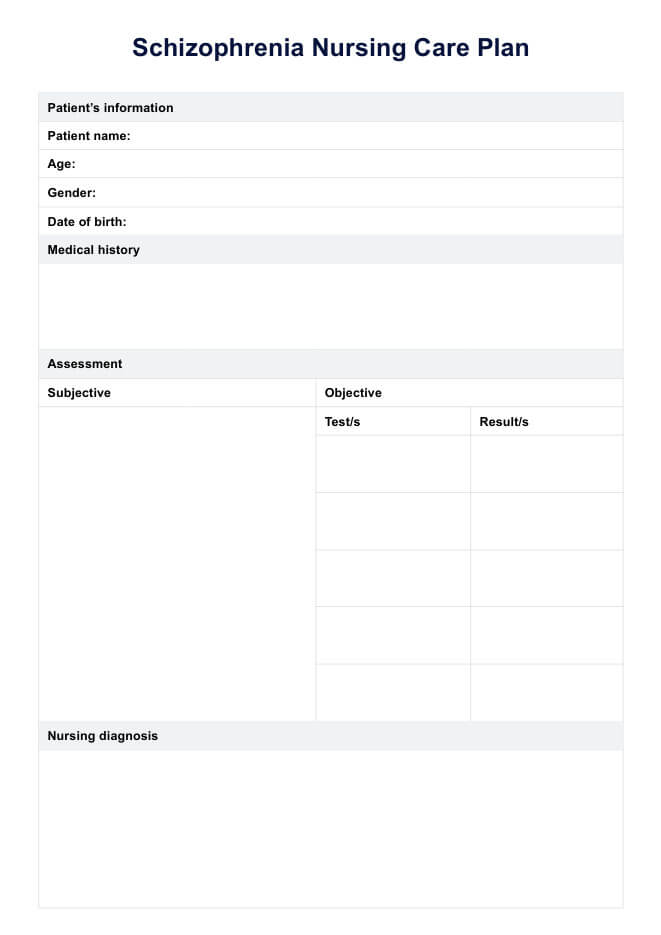To create a comprehensive nursing care plan for schizophrenia, simply create a customized plan from the scaffolding provided by Carepatron and cater to the patient's needs through the key aspects of assessment, diagnosis, planning, intervention, and evaluation.

Schizophrenia Nursing Care Plan
Discover how a Schizophrenia Nursing Care Plan Template can improve schizophrenia treatment. Explore key benefits for patients and healthcare teams.
Use Template
Schizophrenia Nursing Care Plan Template
Commonly asked questions
These valuable plan templates can be used at any point of the treatment journey for a patient with schizophrenia to track, monitor, and plan all interventions both by healthcare professionals and the patient themselves.
Schizophrenia nursing care plan templates are used to plan efficient and confident care delivery. They are designed to be customized and meet the individual patient's needs.
EHR and practice management software
Get started for free
*No credit card required
Free
$0/usd
Unlimited clients
Telehealth
1GB of storage
Client portal text
Automated billing and online payments











